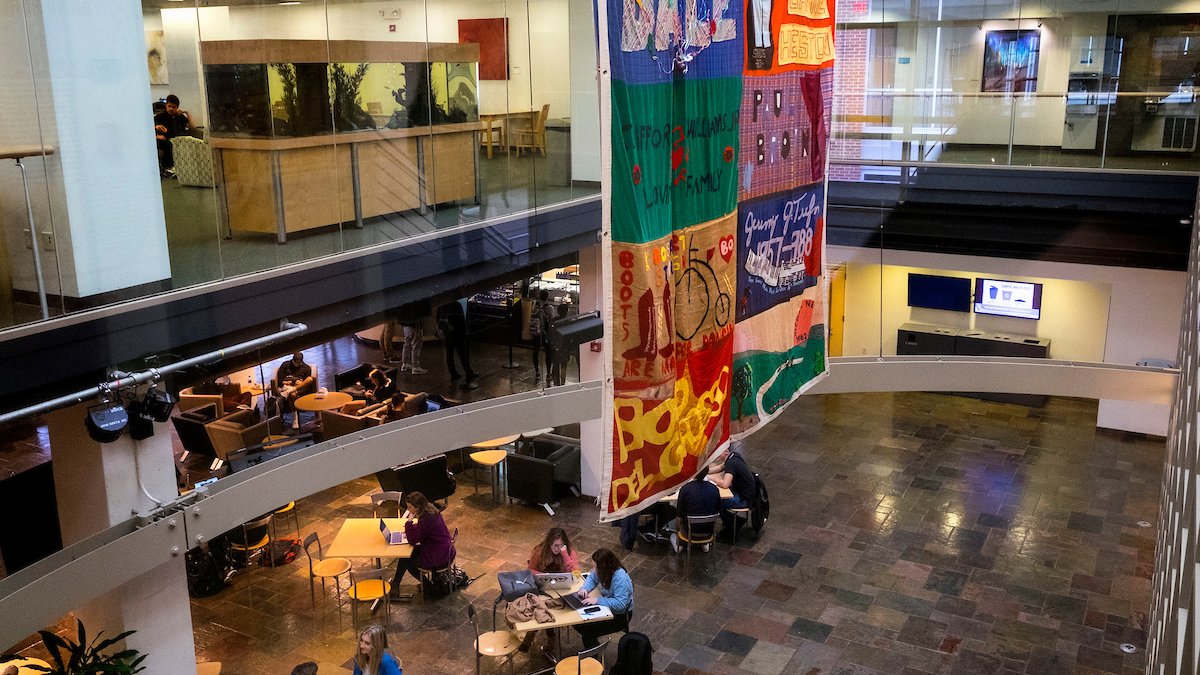Student brings panel of AIDS quilt to Carolina
A panel of the AIDS Memorial Quilt will be on display in the Carolina Student Union’s West Lounge from Jan. 10-31.

As a first-year student at Carolina, Elizabeth Trefney remembers seeing a flyer publicizing a class about HIV/AIDS. The semester-long course is offered each spring by the UNC Center for AIDS Research and is open to all students. Past classes have focused on how the virus impacts the immune system, currently available treatments and the latest prevention strategies.
For Trefney, the course material felt personal. Her uncle, Jeremy, died of AIDS in 1988. She recently learned her uncle had a panel in the AIDS Memorial Quilt. The quilt began in 1987 as a way of celebrating the lives of those lost to HIV. Trefney’s father, John, says Jeremy’s friends created his panel, which is number 766. There are now more than 48,000 3-by-6-foot panels.
Taking the HIV/AIDS course inspired Elizabeth Trefney to action. She asked Executive Vice Provost Ron Strauss, who also organizes the HIV/AIDS course, if bringing the quilt to campus was a possibility. Strauss said it was and encouraged Trefney to reach out to the Names Project Foundation in Atlanta, which is the custodian of the AIDS Memorial Quilt.
“At first, I just requested bringing a section of the quilt to campus,” Trefney says. “Then I learned I could request my uncle’s panel. It will be the first time anyone in my family has seen it.”
The panel will be on display in the Carolina Student Union’s West Lounge from Jan. 10-31. There will be a special presentation where attendees will be asked to shine lights from their cell phones on the quilt in an act of unity from 7-8 p.m. on Jan. 24.
Surrounded by Love
Jeremy Trefney worked as a marketing professional by day and played music at night in Cleveland. John Trefney remembers listening to his older brother play the clarinet, saxophone and piano.
“Elizabeth plays the piano and I feel like a piece of him is still with us when she plays,” Trefney says.
John Trefney was a high school sophomore when Jeremy told the family he was gay.
“I had a tough time accepting that. It took me about six months to come to terms with it,” Trefney says. “But the experience brought us closer. And when Jeremy became sick and told us he had AIDS, we embraced him. That was not the case for everyone who was diagnosed at that time. My father would go to the hospital every day. I remember him rubbing my brother’s feet. But some people never had any visitors and they died alone.”
Jeremy Trefney died at the age of 31 in 1988. No treatments for the virus existed at that time. The field has come a long way in the past 30 years with Carolina leading major discoveries in treatment, prevention and cure research.
Elizabeth Trefney never met her uncle. She and her father hope bringing his panel to Carolina will put a face to the virus that still affects nearly 37 million people worldwide.
“Throughout his fight with AIDS, my brother was always surrounded by love,” John Trefney says. “We hope people will visit his panel while it is on campus, and feel that sense of love and acceptance.”




